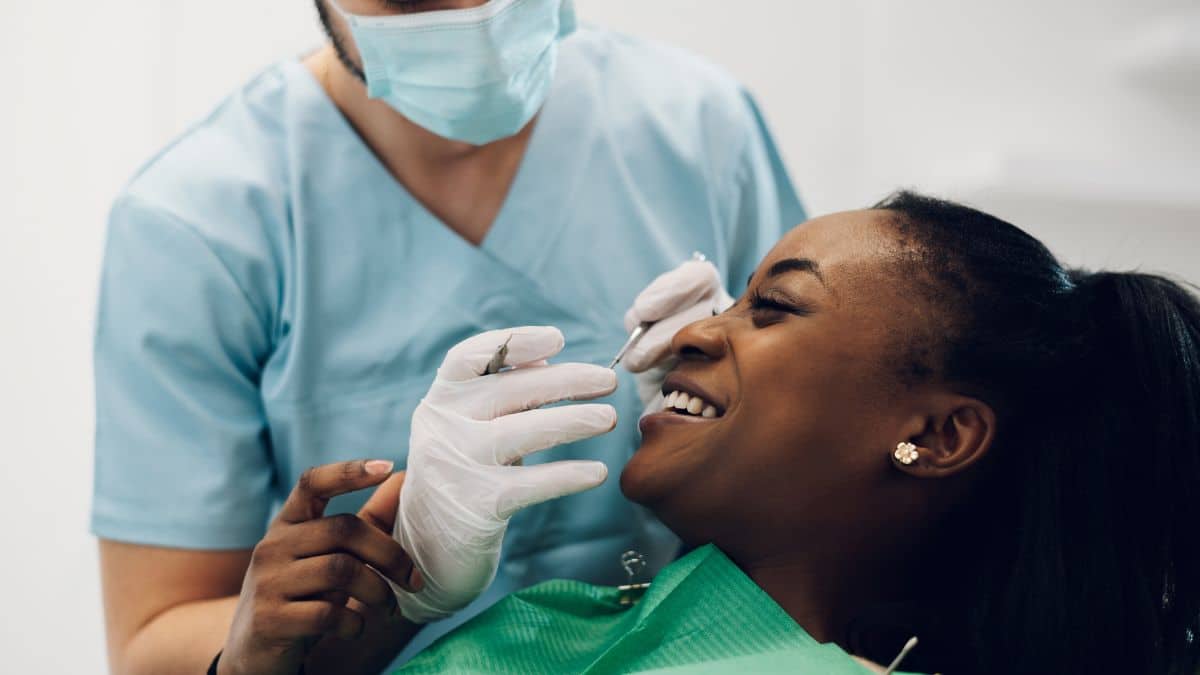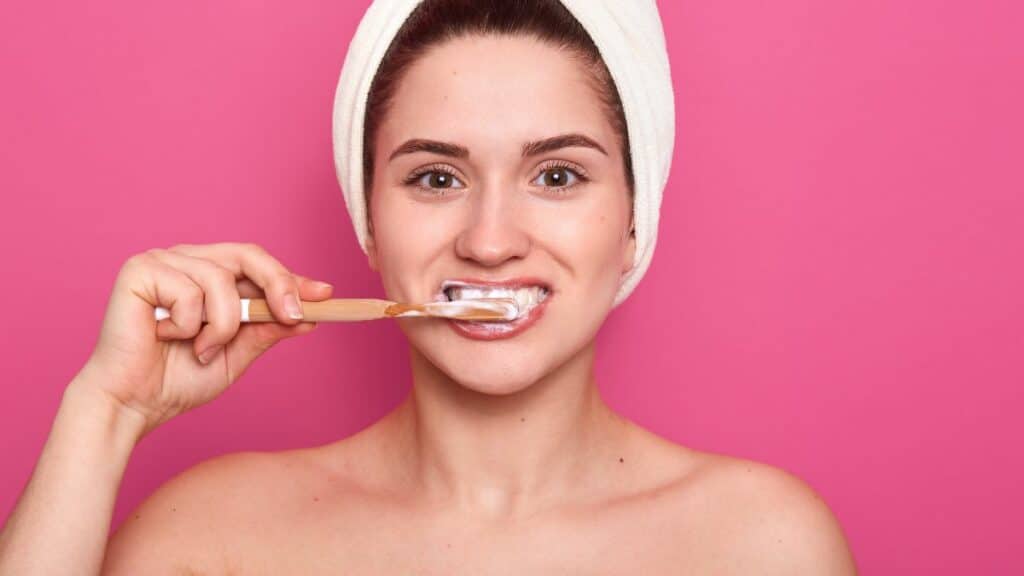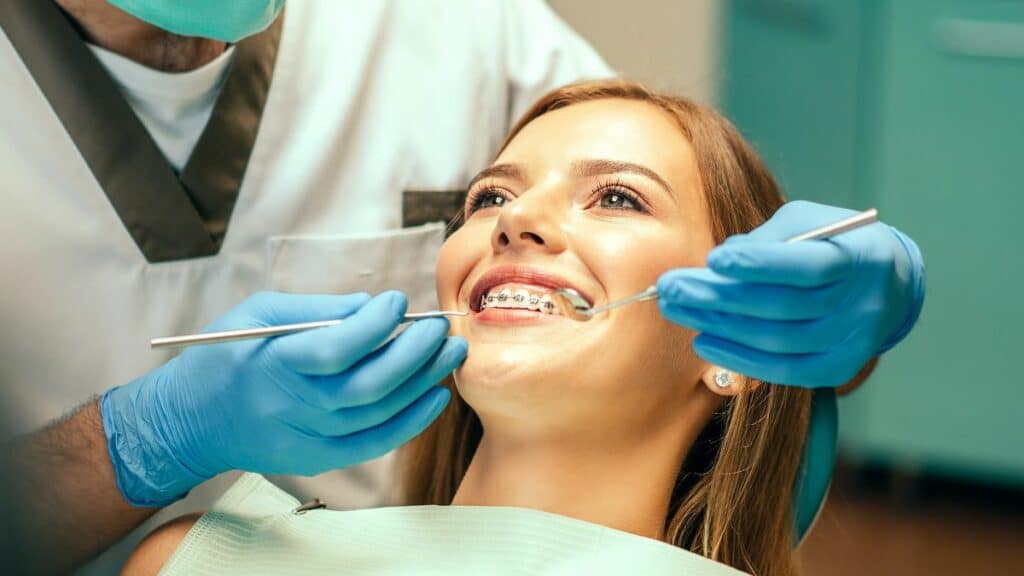Let’s face it, not everyone is a fan of visiting the dentist. Perhaps you’re one of those people who think “Is it really necessary to have a dentist?” It’s easy to question the importance when you’re not in pain and your teeth seem fine. After all, we’ve got plenty on our plates without adding regular dental check-ups into the mix.
However, as someone well-versed in dental health matters, I’m here to tell you that having a dentist isn’t just about addressing toothaches or cavities. Dental professionals play an integral role in maintaining our overall oral health which includes prevention and early detection of serious issues like gum disease and oral cancer.
Truth be told, avoiding regular visits might save us some time now but could potentially lead us down a road riddled with complex dental issues later on. This doesn’t mean rushing out there and grabbing the first dentist available though! Finding one that suits your specific needs is crucial for long-term commitment.
Understanding the Importance of Regular Dental Check-ups
Now, I’m sure you’ve heard it before – regular dental check-ups are important. But do you know why? It’s not just about having a gleaming smile for your next selfie (although that’s definitely a bonus!).
You see, those routine trips to the dentist go far beyond surface-level aesthetics. They’re actually crucial in maintaining your overall oral health and detecting potential issues early on.
Imagine this: You’ve got a small cavity forming but there aren’t any symptoms yet. Without that bi-annual trip to your friendly neighborhood dentist, it could worsen over time and lead to severe toothache or even loss of the tooth! Scary right? According to American Dental Association (ADA), 1 in every 4 adults has untreated tooth decay.
| Adults with Untreated Tooth Decay | Percentage |
|---|---|
| Adults | 25% |
Even if cavities aren’t haunting you at night, plaque build-up is another sneaky villain that regular dental cleanings can help combat against. Plaque is essentially an invisible layer of bacteria on our teeth which if left unchecked can cause gum disease and ultimately lead to more serious complications such as heart disease!
Here are some alarming stats:
- More than half of Americans aged 30 or older have periodontitis
- Gum diseases like periodontitis have been linked with other systemic diseases like diabetes and cardiovascular diseases
Don’t forget – prevention is always better than cure! By scheduling those twice-a-year visits with your dentist, you’re investing in preventive care for yourself.
In essence:
- Routine check-ups allow dentists to detect problems early.
- Professional cleanings prevent plaque build-up.
- Dentists provide advice tailored specifically for YOU based on their observations during these visits.
So let me ask again – Is it okay not having a dentist? I think we both know now that the answer is a resounding “No”. Regular dental check-ups are not just about maintaining a pretty smile, they’re about safeguarding your overall health. Don’t you think it’s time to pick up the phone and make that appointment?
Consequences of Neglecting Oral Health Care
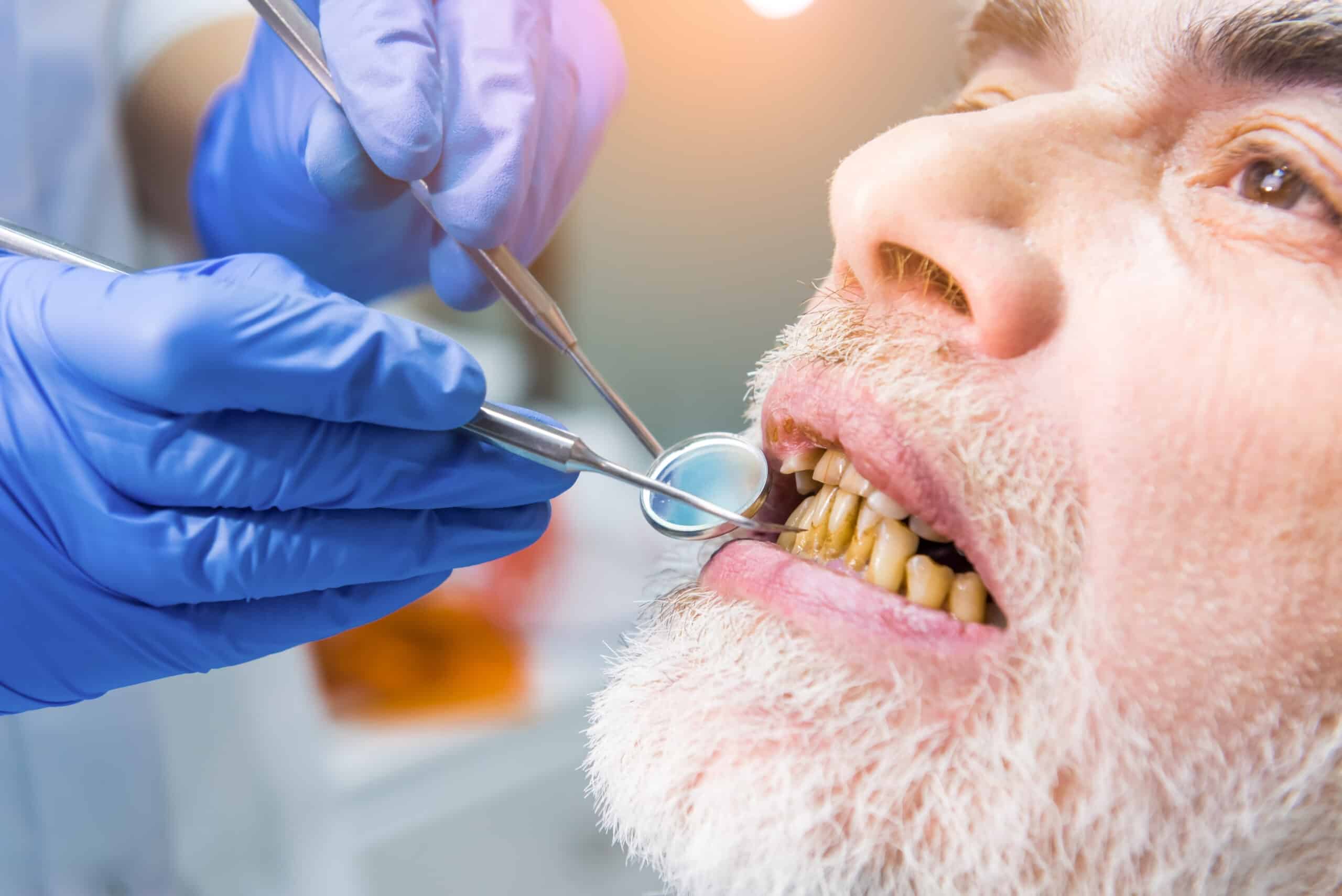
If you’ve ever pondered the question, “Is it okay to not have a dentist?”, I’m here to tell you that it’s definitely not. There are some pretty serious consequences for neglecting your oral health care, and I don’t just mean bad breath or yellow teeth. Here’s what could happen if you decide to skip those regular check-ups.
Tooth decay is one of the most common issues that arises when dental care is neglected. It doesn’t take much – just a combination of plaque build-up and sugary foods can lead down this unpleasant path. Once tooth decay sets in, there’s no turning back; it can result in pain, sensitivity, infection and even loss of teeth if left untreated.
Gum disease is another serious issue that often flies under the radar until it’s too late. A staggering 47% adults aged 30 years or older have some form of gum disease according to Centers for Disease Control (CDC). Here’s how these stats break down:
| Age Group | Percentage with Gum Disease |
|---|---|
| Adults over 30 years | 47% |
Then there are more systemic health problems linked with poor oral hygiene like heart disease and diabetes which might surprise many people! Numerous studies suggest an association between periodontal diseases (gum diseases) and these systemic conditions due to inflammation caused by bacteria present in mouth.
- Heart Disease: According to American Heart Association (AHA), individuals with periodontal disease have two-to-three times higher risk for heart attacks compared other folks.
- Diabetes: The National Institute of Dental & Craniofacial Research points out that diabetic patients with severe periodontal disease may find difficulty controlling their blood sugar levels effectively.
Last but certainly not least on my list today – confidence issues! If we’re honest about it, our smiles play a big role in how we feel about ourselves and how others perceive us. Neglected teeth can lead to a lack of self-esteem, impacting our social interactions and overall mental health.
So, the next time you consider skipping that dental appointment or brushing off your oral hygiene routine – remember what’s at stake! Regular visits to the dentist aren’t just about keeping your smile bright; they’re a crucial part of maintaining both your physical and emotional well-being.
The Role of Dentists in Maintaining Oral Hygiene
Let’s dive right into the heart of the matter. Dentists play a pivotal role in maintaining oral hygiene, and I’m here to explain why. They’re not just there for your annual check-ups or when you’ve got a toothache that won’t quit – their work goes much deeper than that.
Firstly, dentists provide professional cleaning services. No matter how religiously we brush and floss at home, it’s tough to completely remove all plaque build-up. That’s where our dental saviors come in handy! With their specialized tools and expertise, they can clean those hard-to-reach areas effectively.
- Regular Cleanings: Reduce risk of gum disease
- Advanced Cleaning Techniques: Remove stubborn tartar deposits
Next on deck is preventive care – an area where dentists truly shine! By regularly monitoring your oral health, they can spot early signs of problems like cavities or gum disease before they become major issues.
- Preventive Checkups: Detect early symptoms
- Timely Interventions: Prevent progression of diseases
Another crucial aspect is education about proper oral hygiene practices. We often underestimate this part but trust me; it makes a world difference!
Dental Education: Learn correct brushing & flossing techniques
Lastly but certainly not least are corrective treatments performed by dentists – from fillings for cavities to root canal therapy for severe infections; these procedures help restore oral health and function.
-Corrective Procedures: Address existing dental problems
It’s clear as day then; while you might be able to skip out on dentist visits now and then if your teeth feel fine (though I wouldn’t recommend it), consistently neglecting professional dental care could lead down an uncomfortable road indeed!
Do-It-Yourself: At Home Dental Care Practices

Let’s dive right into the world of at-home dental care. It’s not always feasible to make it to a dentist, but that doesn’t mean we should ignore our oral health. On the contrary, there are plenty of ways you can take charge of your dental hygiene right from home.
Brushing twice a day is probably something you’ve heard since childhood and for good reason. According to American Dental Association (ADA), brushing with fluoride toothpaste for two minutes helps prevent cavities and gum disease – both leading causes of tooth loss.
| Statistic | Details |
|---|---|
| Cavities Prevention | Brushing twice daily prevents 25% more cavities than brushing once |
| Gum Disease Prevention | Daily flossing reduces gum disease risk by 27% |
Next on the list is flossing daily. You might be thinking “I brush my teeth, isn’t that enough?” Well, here’s some food for thought – or rather plaque for thought! The ADA states that up to 40% of your teeth surfaces aren’t touched by brushing alone; hence incorporating flossing into your routine is crucial.
Rinsing with an antibacterial mouthwash also plays a significant role in maintaining oral health. It reaches areas even beyond where brushing and flossing can reach and adds an extra layer of protection against harmful bacteria.
Lastly, don’t underestimate the power of diet in contributing towards good dental health:
- Regular intake of water keeps gums hydrated
- Dairy products provide calcium essential for strong teeth
- Fibrous fruits like apples act as natural toothbrushes
Remember though – these practices do not replace professional dental check-ups entirely but they certainly help maintain healthy smiles until your next visit!
Dental Emergencies: When Not Having a Dentist Becomes a Problem
Ever considered the implications of not having a dentist? It’s easy to brush off regular check-ups when your teeth seem fine, but dental emergencies can strike out of nowhere. Let me paint you an all too common picture.
Picture this – it’s late on a Friday night and you’re enjoying some quality time with friends. Suddenly, there’s that sharp sting in your mouth followed by throbbing pain – unmistakable signs of toothache. The reality is, most dental practices won’t be open until Monday morning at the earliest! Without an established relationship with a dentist who might offer after-hours care for patients in need, what do you do?
It gets even more serious when we consider conditions like abscesses or oral infections that could become life-threatening if left untreated. In 2019 alone, around 2 million people visited emergency rooms across America due to preventable dental issues – problems that could have been nipped in the bud by routine visits to their dentists.
| Year | Number of ER Visits (in millions) |
|---|---|
| 2019 | 2 |
Not convinced yet? Here are few other scenarios where not having a dentist can turn into real trouble:
- Ignoring minor cavities may lead to root canal treatments or even extractions
- Gum diseases often go unnoticed until they start causing significant discomfort and damage
- Early signs of oral cancer can be missed without regular professional screenings
And let’s remember – these aren’t just physical health concerns either; poor oral health has been linked to lower self-esteem and social anxiety as well!
So yes – while it might seem convenient or cost-effective initially skipping those annual cleanings and check-ups at the dentist’s office isn’t quite as harmless as one would think. Being without immediate access to professional help during dental emergencies does come with its fair share of risks.
Evaluating Alternatives to Traditional Dentistry
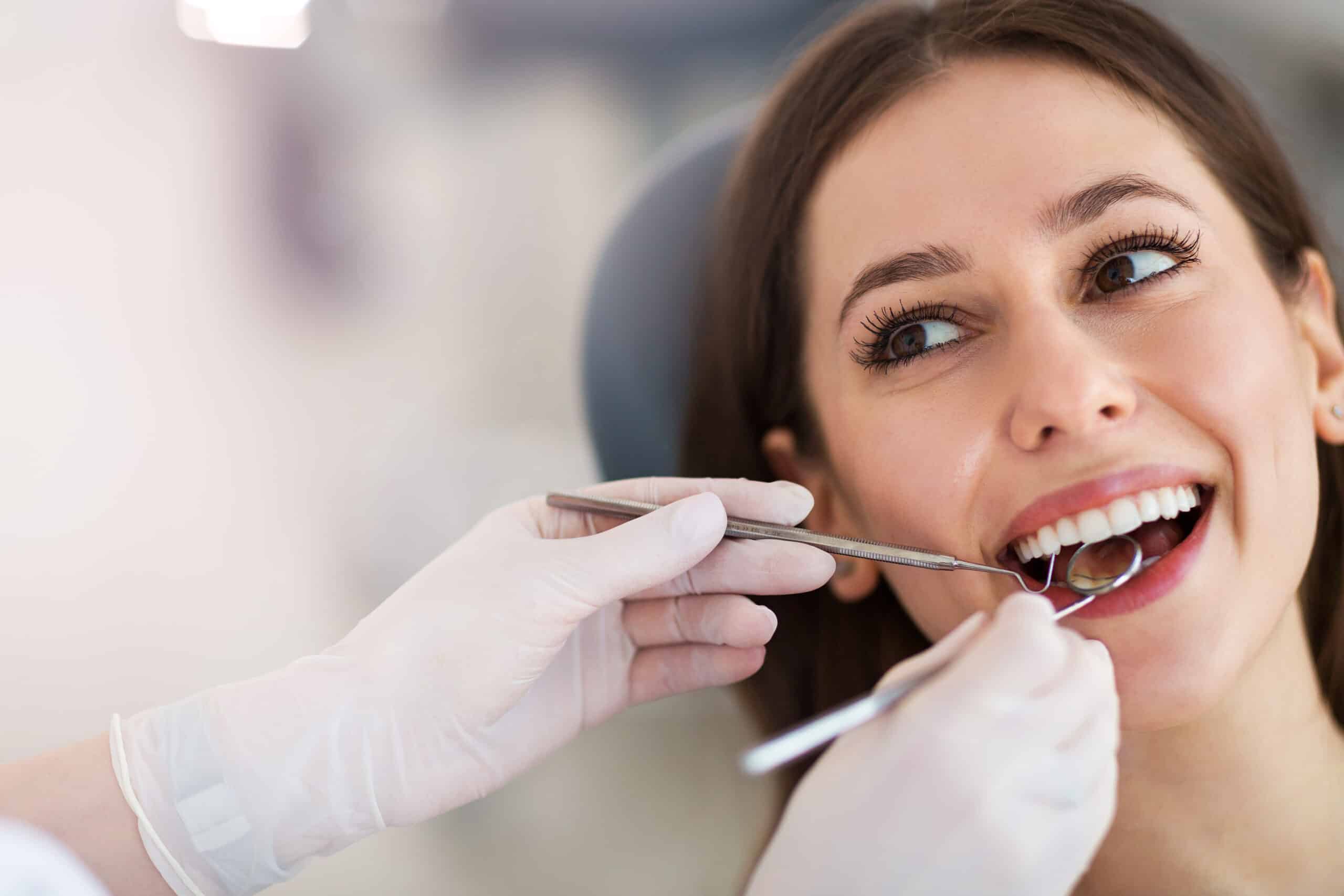
In the quest for dental health, it’s essential to understand that traditional dentistry isn’t your only option. A myriad of alternatives exist and I’m here to help you navigate through them.
Holistic dentistry is one such alternative gaining momentum in recent years. This approach considers your overall wellbeing, not just focusing on your teeth and gums. It minimizes the use of toxic materials and emphasizes prevention over treatment. For instance, instead of quickly filling a cavity, a holistic dentist might investigate diet or lifestyle factors contributing to tooth decay.
Natural remedies also play an integral role in non-traditional oral care routines. Oil pulling with coconut oil can aid in reducing harmful bacteria in your mouth while baking soda has been praised for its whitening properties.
Similarly noteworthy is tele-dentistry —a boon especially during pandemic times— allowing patients to receive dental advice from the comfort of their homes via video calls with certified professionals.
Home-based dental care kits have made significant strides too; some even include devices that allow users to take impressions of their teeth at home for treatments like aligners or night guards.
Here are some key points:
- Holistic dentists focus on whole-body health
- Natural remedies can reduce bacteria and whiten teeth
- Tele-dentistry allows remote consultations
- Home-based kits enable self-impression making
Remember though, every alternative comes with its own set of pros and cons which need careful evaluation before diving into any new regimen. Always consult a professional if you’re unsure about making changes as severe complications may arise if unguided decisions are taken regarding oral health care.
Weighing the Pros and Cons: Is it Okay to Not Have a Dentist?
Let’s dive right in, shall we? One of the key reasons people often forgo having a regular dentist is cost. It’s no secret that dental care can be expensive, particularly if you don’t have insurance. Some folks might argue that they’re saving money by skipping out on routine check-ups.
Yet, I’d caution against this mindset. Sure, you might save some dollars now but could end up paying more later due to untreated oral health issues which can snowball into bigger problems requiring more complex (and costly) treatments.
Here are few numbers to consider:
| US Dental Statistics | |
|---|---|
| Americans without dental insurance | 74 million |
| Annual cost for preventative dental visits | $200 – $600 |
While avoiding the dentist may seem like an easy way to cut costs today, bear in mind the potential long-term effects on your overall health too. Did you know gum disease has been linked with heart disease? Or how about this surprising fact: certain types of mouth bacteria may even increase risk of developing Alzheimer’s disease!
Now let’s flip the coin and look at what not having a dentist means from another perspective – autonomy over one’s own healthcare decisions. Some people feel strongly about taking charge of their own health without external intervention or monitoring unless absolutely necessary.
In these cases though, it’s crucially important those individuals maintain stringent homecare routines – think thorough brushing twice daily and consistent flossing – coupled with being mindful about diet choices affecting oral health.
To sum up my thoughts here: while there may be perceived pros in not maintaining regular visits with a dedicated dentist such as financial savings or increased personal freedom regarding healthcare decisions; there also exist significant risks both financially (due to potentially higher future treatment costs) and medically (from links between poor oral hygiene and various systemic diseases).
Conclusion: The Final Verdict on Forgoing Regular Dental Visits
So, what’s the bottom line here? Well, it’s quite clear. Neglecting regular dental visits isn’t something I’d recommend. Here’s why:
Dental check-ups play a vital role in maintaining not just oral health but overall well-being too. These visits are crucial for early detection of potential issues like gum disease and cavities which can lead to more serious complications if left untreated.
If you’re thinking about saving money by skipping out on these appointments, think again! In the long run, preventive care is much cheaper than treating problems that have been allowed to progress due to lack of regular checks.
To put this into perspective:
- A routine cleaning costs around $70-$200
- Filling a cavity can cost anywhere from $50-$450 per tooth
- Root canal therapy ranges from $300-$2,000 depending on the complexity and location of the tooth
| Procedure | Cost Range |
|---|---|
| Routine Cleaning | $70 – $200 |
| Cavity Filling | $50 – $450 per tooth |
| Root Canal Therapy | $300 – $2k |
From this data alone we see that neglecting your teeth now might end up costing you so much more later.
Now let’s talk about comfort levels – there’s no denying that many people dread going to the dentist because they associate it with pain or discomfort. But with advancements in modern dentistry techniques and pain management methods such as sedation dentistry or local anesthesia – most dental procedures these days are virtually painless!
Lastly, don’t forget aesthetics! Regular cleanings help keep your teeth white and shiny while also preventing bad breath – both things we all strive for when it comes to our smiles.
So my final verdict? It’s simply not worth risking your health by skipping those regular trips to your dentist. Your teeth, your wallet and ultimately you will be better off for it!

